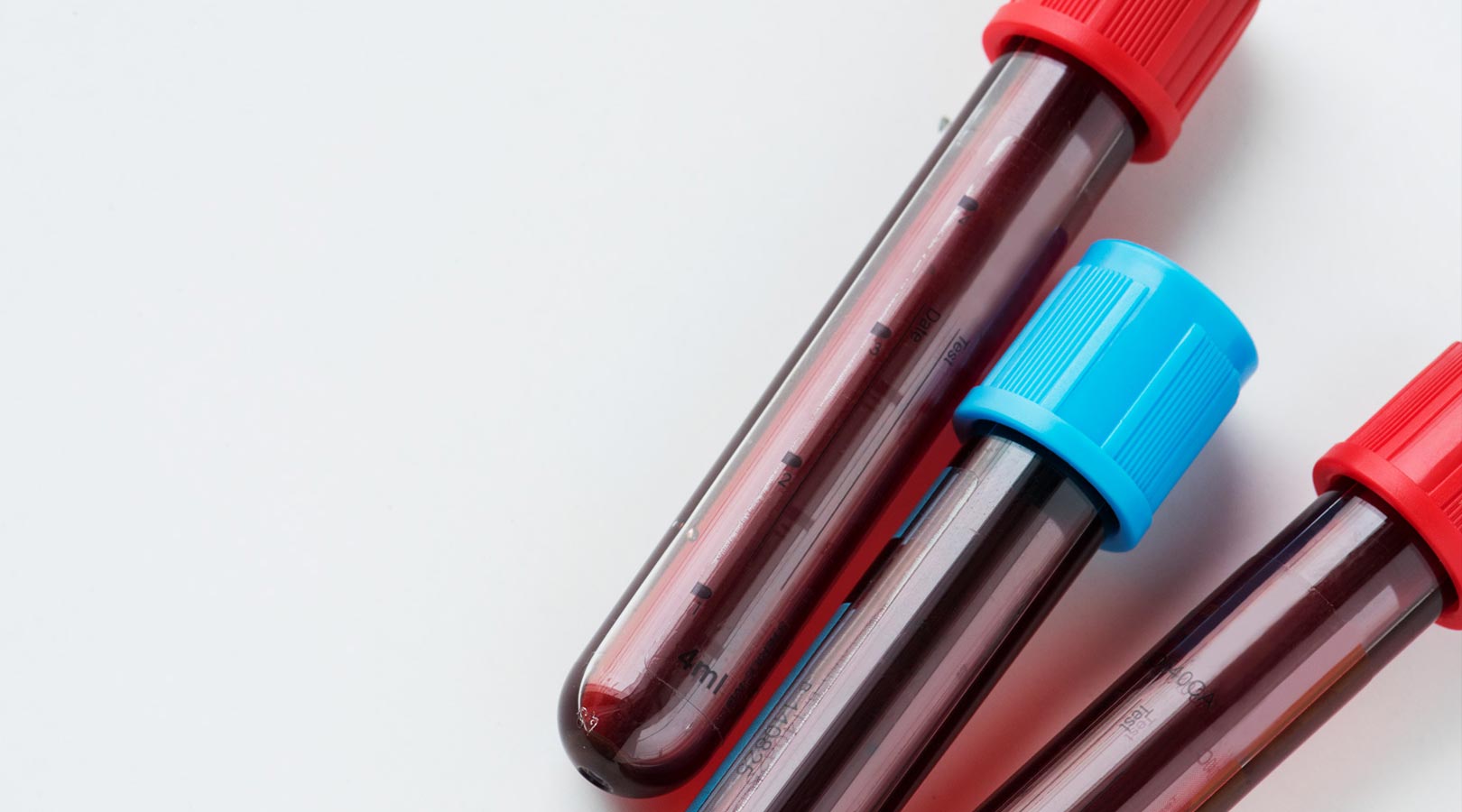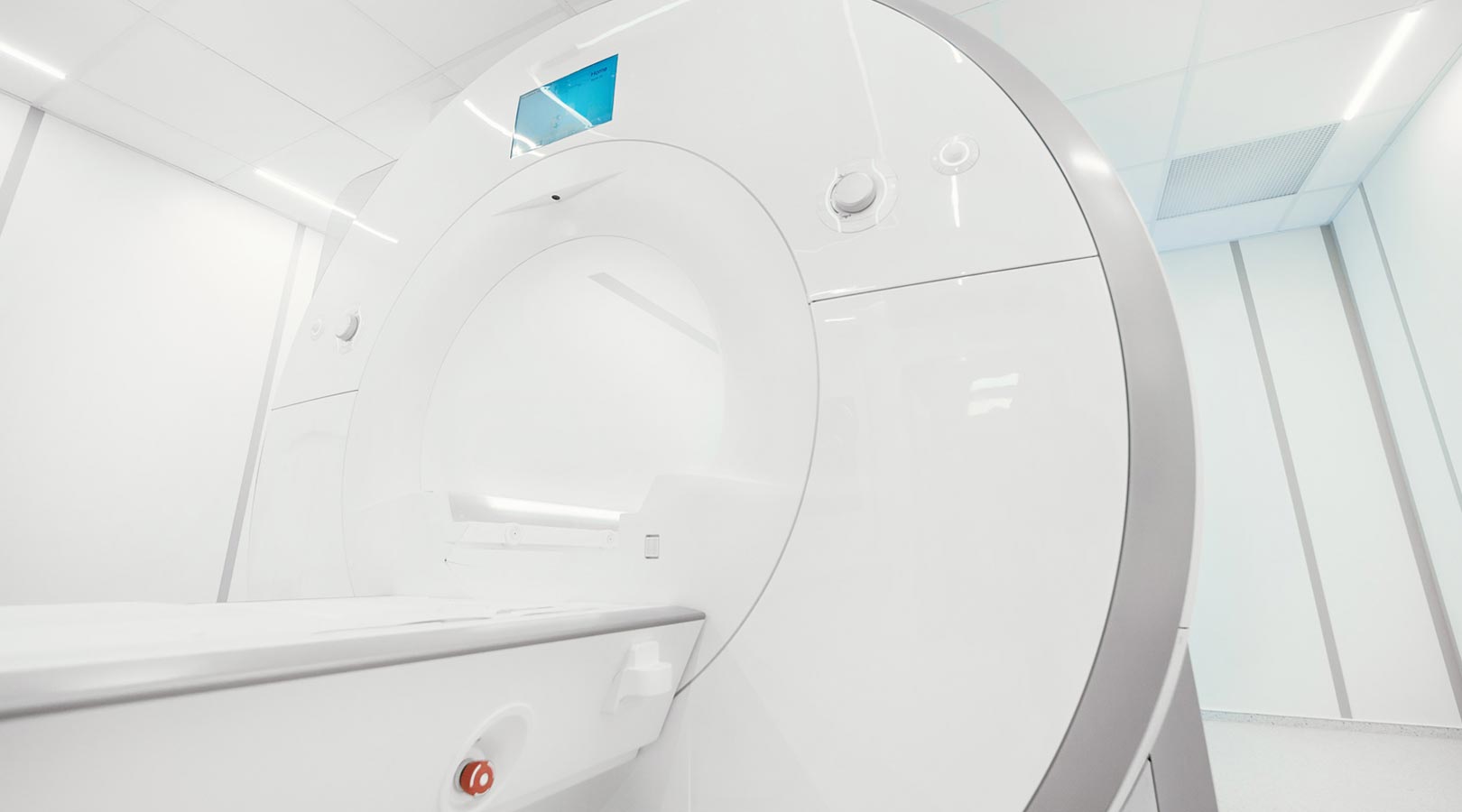Be proactive about multiple myeloma
You may have experienced challenges within the medical system. Due to these experiences, you might be less likely to go to the doctor and get treatment before you feel sick.
You can’t let that stop you. If we put off our care, we and the people we care for will feel the consequences the most.
If you begin to experience symptoms of multiple myeloma, the cancer might be progressing and becoming harder to treat. Fortunately, we can be proactive by getting blood tests with our regular checkups.
In consideration of the time spent participating in this activity, Amy Pierre was paid an honorarium by Johnson & Johnson.
Be proactive about multiple myeloma
The importance of routine health care
Nobody looks out for our health better than we do. Adding routine care to your overall health is one way you can look out for yourself.
Since our chances of developing multiple myeloma (MM) are higher than some other groups, together we can stay aware of what puts us at greater risk. If you know you’re at an increased risk for MM, you can ask your doctors to look for warning signs during annual or routine tests.
What to check for once you turn 50
Around 50, you might start to notice quite a few changes in your body. You might notice changes in your sleep, your energy levels, or new aches and pains you didn’t have before.
Although some of these changes might be normal parts of aging, it’s more important than ever to stay on top of your health during this time in your life.
That’s why you should bring up even the smallest of changes so that your doctor can properly care for you.
Here are a few things your doctor may check:
Weight fluctuations or changes
Weight fluctuations or changes
Any unexplained changes in weight might be a sign of something serious.
Bone density
Bone density
This test is commonly done in women 65 and older who have gone through menopause. However, men and women with lower bone density who are likely to suffer bone breaks and fractures should be tested as early as 50.
Complete blood count (CBC)
Complete blood count (CBC)
This is a common blood test and may already be a part of your routine checkup. It counts your red and white blood cells and blood platelets to get a view of your overall health—to help diagnose new conditions (like MM) or monitor current conditions.
Urine test
Urine test
Urine tests are common, but if you’re at greater risk for MM, your doctor may ask for one as a first step to check myeloma protein levels.

Regular checkups to catch MM early
Routine checkups are helpful for our overall health and for finding early risks for diseases, including MM.
If something doesn’t feel right, speak to your doctor
It’s easy for anyone—even doctors—to dismiss tiredness or increased aches and pains as signs of aging. While these signs and symptoms may not always mean you have MM, it’s important to talk to your doctor about them if you’re at risk.
Be proactive about multiple myeloma
Multiple myeloma symptoms and signs to know
Symptoms for multiple myeloma (MM) are tricky. Some people may never feel anything until their MM has progressed. Others may feel a range of mild to severe symptoms that might resemble a different type of illness. By knowing risk factors and understanding the symptoms you might be feeling, you can bring up concerns about MM with your doctor if you're at risk.
Below are symptoms that you or your loved ones may notice but may not be automatically associating with MM.
Getting sick more often or not getting better as quickly as you normally would
Getting sick more often or not getting better as quickly as you normally would
In multiple myeloma, cancerous cells overpower healthy ones that help with fighting infections. As a result, your immunity is weakened.
Bone pain
Bone pain
Because MM begins to grow in the bone, it can cause severe sudden back pain, ongoing backaches, or pain in the hips, skull, or other bones. It’s also not unusual to feel tender for no explainable reason.
Bones break easier in patients with MM
Bones break easier in patients with MM
MM cells inside the bone marrow cause tiny breaks or holes in your bones.
Numbness, tingling, or weak muscles
Numbness, tingling, or weak muscles
Bones in your spine can break and put pressure on your nerves. Nerve pressure weakens muscles, including those in your legs. You might also have numbness or tingling in your back.
Weakened bladder
Weakened bladder
As MM cells build up along the spine, they can cause more frequent urination.
Weakness and shortness of breath
Weakness and shortness of breath
These signs and symptoms could mean kidney problems. In some people, kidney failure is the first sign that leads to a diagnosis of MM.
Feeling lightheaded, dizzy, or weak; and looking paler than usual
Feeling light-headed, dizzy, or weak, and looking paler than usual
These symptoms could mean you have a low red blood cell count, called anemia.
Unusual bleeding
Unusual bleeding
When you bleed for longer than usual, it may mean your blood platelet counts are low, which can be a symptom of MM.
Stomach and digestive system issues
Stomach and digestive system issues
MM can cause calcium from your bones to leak into your bloodstream, which might leave you feeling sick and thirsty. Vomiting, diarrhea, constipation, and loss of appetite are related symptoms. They can be signs of MM.
Purple bumps and rashes
Purple bumps and rashes
As cancer cells build up underneath the skin, they can form large purple bumps on the skin. This only happens in late stages of MM, so make sure you see a doctor right away if you experience these symptoms.
Be proactive about multiple myeloma
Tests to monitor your multiple myeloma risk
There are a number of different tests that can help evaluate our risk for multiple myeloma (MM). How we check for MM may differ based on age, our level of health, or family history—but the first step isn’t as difficult as you may think.
If your doctor suspects you have MM, they may add these tests to your normal bloodwork or annual physical. Below are some tests that you can expect from your doctor:

Blood tests
One common blood test used is the Serum Protein Electrophoresis (SPEP) test. This measures specific proteins in the blood to help identify diseases like MM. Your doctor may recommend the SPEP test or tests such as Complete Blood Count (CBC) and Blood Chemistry, which determine the amount of blood cells, platelets, proteins, minerals, and amino acids in your blood. When you have myeloma cells, they can change the healthy amount you should have. Keep the following in mind when completing a CBC or Blood Chemistry test.
What to look for:
Once you get your lab results, if your count is within the “reference range,” your count is normal. If your test results are either too low or too high, talk with your doctor. These results may be signs of a medical condition that requires attention and monitoring, such as MM.
| What to Look for: | What It Does: | Normal Reference Range*: |
|---|---|---|
Red Blood Cells (RBC) | Carry oxygen to muscle tissue in your body and remove carbon dioxide | 4.2 to 6.1 M/mm3 |
Hemoglobin (Hgb) | A part of the red blood cell that carries iron | 12 to 18 g/dL |
Hematocrit (Hct) | The percentage of red blood cells in the blood | 37% to 52% |
White Blood Cells (WBC) | Help the body fight infection | 5 to 10 K/mm3 |
| Platelets (Plt) | Help control bleeding and ensure proper clotting | 150 to 450 K/mm3 |
| Creatinine | Protein waste product filtered out of your body through your kidneys | Men: 0.7 to 1.3 mg/dL Women: 0.6 to 1.1 mg/dL |
Albumin | A protein made by the liver to help nutrients and hormones travel through the body | 3.5 to 5.5 g/dL |
Calcium | A mineral used to form strong bones and help provide energy to your body | 8.5 to 10.2 mg/dL |
*Individual lab reference ranges may vary.

Urine tests
The most common urine test is called Urine Protein Electrophoresis (UPEP). With UPEP, your doctor will take a sample of urine, mix it with a gel, and run an electrical charge through it to separate the proteins in your urine.
What to look for:
If myeloma proteins are found in your urine, your doctor may run an additional test on the sample to confirm which kind of myeloma proteins you have.
Be proactive about multiple myeloma
What do I do if I have an abnormal test?
Downloads
Getting an abnormal lab result may leave you wondering what to do next.
Once you receive your test results, your doctor should discuss them with you. If they suspect you have multiple myeloma (MM), they will refer you to a hematologist-oncologist, a doctor specializing in treating blood cancer. Since MM is an uncommon cancer, a hematologist-oncologist will be the expert to help determine if you have MM. It takes more than one test to be sure if you have MM. If your doctor suspects MM, ask about this referral as soon as possible.
Your hematologist-oncologist may run a few additional tests to confirm if you have multiple myeloma, and if so, will determine its stage.

Bone marrow test
A specialist will perform a minor procedure where they collect a sample of your bone marrow by using a syringe and needle. This method is known as bone aspiration and biopsy.
After the samples are collected, the lab will examine the cells, write a report, and perform other tests (if needed) to check if you have MM.

Imaging tests
Your doctors need to see how and where MM is affecting your body. X-rays are not strong enough, so they run scans to create images and get more information about what's happening inside your body.
- MRI (magnetic resonance imaging) tests can reveal whether your bone marrow contains MM or if it has damaged your spine
- CT (computerized tomography) creates more detailed images of bones, blood vessels, and soft tissue
- PET (positron emission tomography) picks up active MM cells, even before any noticeable signs of bone damage. This type of scan is good for finding small tumors
Genetic testing
Genetics of malignant plasma cells can help predict prognosis and at times guide treatment choice. We can use genetic testing to plan ahead and get each person with MM the treatment that will be the best match for their disease.
Different types of genetic testing reveal different details about MM
Cytogenetic tests
These tests look at chromosomes in myeloma cells from a blood or bone marrow sample to identify parts of the genetic code that affect people with multiple myeloma.
Genome sequencing
This test analyzes DNA to provide information about a patient's prognosis, treatment options, and how their myeloma is changing because of their treatment.
Bone marrow aspiration
A doctor puts a thin needle into the bone to take out a small amount of liquid bone marrow. Cells from the bone marrow are the freshest and best for genetic testing.
Genetic testing can help doctors:
- Predict a patient's prognosis and response to treatment
- Identify which patients are most likely to do well on certain treatments
- Track minimal residual disease
What we may learn from genetic testing of myeloma cells:
- Black people with a certain genetic abnormalities or changes can experience longer survival after a transplant
A care partner can help carry the load with you during these uncertain times. Care partners can keep notes and track details during your visits, jotting down important medical information and the next steps to discuss with your doctor. Having a care partner with you can alleviate the need to bring them up to speed since they are experiencing it firsthand alongside you.
Downloads
Finding the right doctor
When it comes to your health, having a strong relationship with your doctor can make a difference in your care and treatment. It's important for you to feel seen and understood at all times.
When you can trust your doctor, you can feel comfortable sharing certain information with them—information that could impact care. But in some cases, you may not have that connection.
Sometimes, you just want a second opinion. Even if your doctor gives you a clean bill of health, your gut might tell you that something isn't quite right. Whatever the case may be, just know you have choices. It’s your right to get a second—or third—opinion if you aren't getting the answers or care you deserve.
It’s important that your word is heard.

Need more facts to talk about MM with your doctor?
If you think you are at risk for developing MM, learn the fast facts about the disease and make routine health care a priority.
Be proactive about multiple myeloma
Find a treatment center
When you or your loved one begins looking for a place to start treatment for mutliple myeloma (MM), you may have questions about where to get treatment and who will be managing it long term. There are usually 2 types of clinics or hospitals that can give you treatment for MM. They are both full of healthcare providers with experience treating people with MM, but they often have specific types of medicines or a certain level of MM care they can give to you.
The chart below will tell you more about what each location offers and how they can work together to see that you or your loved one gets the best possible care for MM.
| Community CenterA local health facility or hospital that can provide your basic care needs and lab tests | Academic CenterA research or teaching facility that may have more specialists on staff and more advanced equipment for procedures across all treatment stages | |
|---|---|---|
| General benefits | Local clinics and facilities may be closer to you and more convenient for routine visits, blood tests, and physical examinations | Research facilities and academic centers tend to be near larger cities, so there may be more travel involved. They can offer more specialized care when the local facility is not able to. |
| Tools to diagnose and monitor |
|
|
| Specialists available |
|
|
| Advanced procedures | Your care team at the community center can recommend and set you up with a facility that can perform more complex medical procedures. |
|
Types of treatment available* Learn more about available treatment options*Usually MM medicines are given in combinations. |
|
|
| Clinical trial sites | The community center can give referrals to clinical trial sites and help transition your care to the research team if you are selected for a trial. | Clinical trials are usually conducted at research hospitals or other academic facilities. Your community center can connect you or your loved one to the nearest research facility to find out if they have a current MM trial that would be appropriate to consider. Trials are often a good way to access newer treatment methods. |










